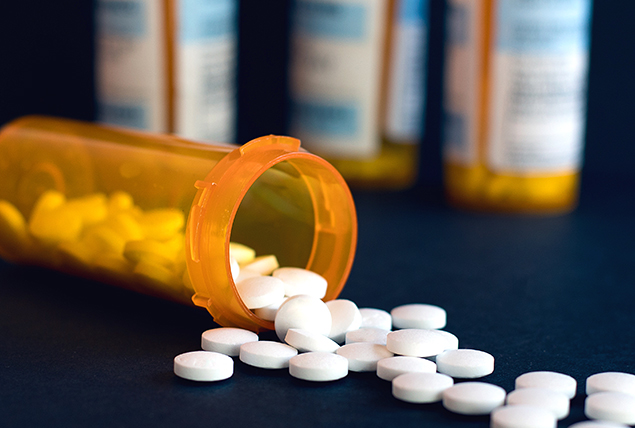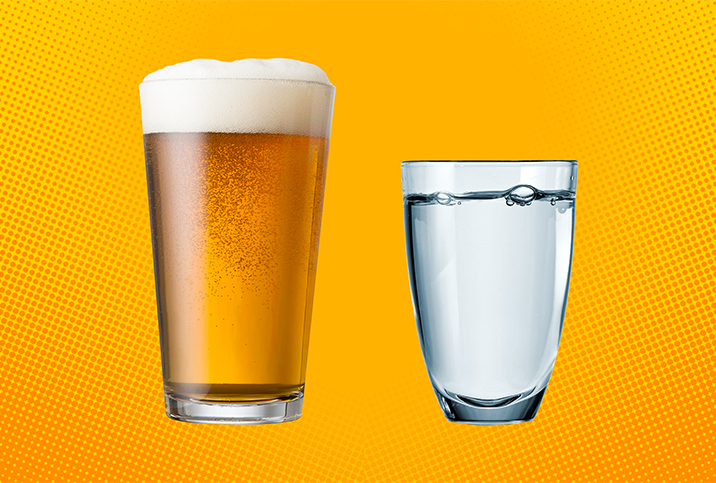When the Dust Settles: The Aftermath of Addiction

Key Points
- Psychology has established five stages of addiction recovery: pre-contemplation, contemplation, preparation, action and maintenance.
- Many people with SUD feel lost trying to detach themselves from the substances they've become dependent on. Having structured ambitions helps them look toward a future without them.
- Partners may find themselves emotionally distanced and isolated because their loved ones prioritized substance use over their relationships. The issues become harder to deal with if shared finances are involved.
You'd be forgiven for thinking there's a pill that can cure everything. But if these cures are becoming central to your well-being, it could be a sign of substance use disorder (SUD), or an uncontrollable physiological and psychological dependency on a substance or substances.
SUD is detrimental to your life and personal relationships.
Therapy and 12-step programs
There are addictive substances all around us, from a cup of coffee to a bottle of anabolic steroids. The threat of addiction is there for each of us, whatever our demographics.
Substance use disorder is a serious condition requiring specialized treatment. Depending on the stage of recovery, it involves different methods to incite or sustain sobriety.
Often, a medical detox—a procedure that eradicates the built-up drug tolerance—begins the process, followed by individualized care that varies in intensity.
At private rehab centers, patients who have completed a detoxification process engage in group or individual cognitive behavioral therapy (CBT) and dialectical behavioral therapy (DBT) to begin tackling the disorder, according to Olalekan Otulana, M.B.Ch.B., a medical reviewer at Addiction Advocates in Stevenage, United Kingdom.
These methods are indicated to be beneficial for SUD. Otulana noted there are often follow-up sessions to help prevent relapse and promote continued progress.
When people consider recovery from substance use disorder, the 12-step model is often one of the first things to come to mind. Through peer-centric sessions to combat SUD or similarly maladaptive behaviors, individuals are reliant on one another for education and support, often with a sponsor to help navigate the process and provide encouragement outside group sessions.
The sponsors are recovering SUD patients themselves and not certified medical professionals. The program has religious connotations, but modern 12-step programs can be compatible with other beliefs.
Native Americans and Alaska Natives, for example, have implemented their versions based on the Teachings of the Medicine Wheel, the Cycle of Life and the Four Laws of Change, according to White Bison, the Native American-operated "wellbriety" operation.
This flexibility promotes cultural competence, which is an important aspect of rehabilitation that ensures flexibility and the same level of care across various backgrounds.
Living in recovery from substance use disorder
Experts in the field of psychology have established five stages of addiction recovery:
- Pre-contemplation
- Contemplation
- Preparation
- Action
- Maintenance
Patients in the full grip of substance use fall within the pre-contemplation stage, while those in the contemplation stage begin to see some benefits of sobriety. During the preparation stage, people begin to pick up momentum in their recovery efforts, though they can experience periods of recession into prior stages.
The action period is when people begin to believe there is an end in sight. Serious personal and interpersonal commitments have been made, healthy coping mechanisms have been established and substance use has essentially stopped.
Maintenance—the final stage—is the ultimate goal.
The person may find it easier to consider their pattern of behavior, deal with behavioral triggers as they occur and operate less on autopilot. The danger of relapses may never disappear for some people, but relapse motivational counseling can help someone who relapses return to recovery, according to a 2019 report.
Some people find 12-step programs as a supportive resource between therapy sessions. Personal liability, an important facet of repairing relationships, including the one you have with yourself, is emphasized.
Perhaps the most important aspect of 12-step programs is the creation of a community, giving people in recovery support and empathy from people with similar life experiences.
Recommended
- Understand the Risks of Substance Abuse: Millions of Americans misuse substances. Don't let that lead to health problems and addiction.
- How Do Opioids Affect the Brain and What Are They?: This broad class of pain relievers is effective but comes with long-term effects if overused.
- Why Would Anyone Take Fentanyl?: This opioid is capable of a potency up to 100 times that of morphine. Fentanyl poses a real risk.
Dating in recovery from substance use disorder
Patients in recovery are urged to wait a year before beginning new relationships. They have much work to do to repair existing ones.
"SUD can have a significant impact on personal relationships across various spheres," said David Tzall, Psy.D., a licensed psychologist in Brooklyn, New York. "Frequent lying, secretive behavior and broken promises can lead to a breakdown in trust and communication. The individual with SUD may try to hide their substance use, leading to feelings of betrayal and frustration in their loved ones."
Partners may find themselves emotionally distanced and isolated because their loved ones prioritized substance use over their relationships, Tzall noted. The issues become more difficult to deal with if shared finances are involved.
"A partner may likely spend a lot or all of their money getting out of debt and paying legal or medical fees," he said. "The individual with SUD may engage in disruptive behavior, experience mood swings or become irritable, leading to arguments, misunderstandings and strained relationships."
Whether you're someone in recovery or an intimate partner of someone who is, tread carefully. It's recommended to wait at least a year after treatment.
You don't have to be ready to resume the relationship as it once was after your partner recovers from SUD. Therapy may be beneficial for both partners.
Supporting someone with SUD
You don't have to be directly impacted by substance use disorder to be supportive. Avoid stigmatizing language and attitudes toward people suffering from SUD, as they often make the problem worse, according to David Deyhimy, M.D., an addiction medicine expert and the medical director of MyMATClinic in Laguna Hills, California. He suggested educating yourself and others who want to help.
"This is the number one cause of death for 18- to 45-year-olds in the United States, and we are not addressing this with effective medical treatments," he said.
Deyhimy said every parent and loved one should know about the lifesaving benefits of carrying an opioid reversal medication, such as naloxone.
Often, individuals with substance use disorder and their family or close friends form codependent relationships, according to Tzall.
Loved ones may sacrifice their well-being to support or protect the person with SUD, creating a cycle of unhealthy behaviors and hindering the recovery process. Seeking experienced therapy can help both partners process their emotions and avoid old patterns of behavior.
The behaviors of someone with SUD can decimate support systems, which is one reason addiction is considered a "family disease."
Communication, rehabilitation and recovery for everyone involved can help lead to a successful outcome. Consistent teamwork and firm adherence to established boundaries and treatment plans can contribute to lasting sobriety.
Resources for patients and caregivers
Substance use disorder is a grievous condition, but SUD recovery is possible. With time, effort and support, people can achieve sobriety, restore relationships and ultimately reclaim their lives.
A wealth of resources is available to help guide anyone affected by addiction, both in-person and online. Here are resources to help you begin:
- National Institute of Mental Health (NIMH)
- Substance Abuse and Mental Health Services Administration (SAMHSA)
Otulana recommended the following community services:
If you or someone you know needs help, don't wait. According to Deyhimy, 110,000 people a year are dying of preventable overdoses, many of those from the synthetic opioid fentanyl.


















